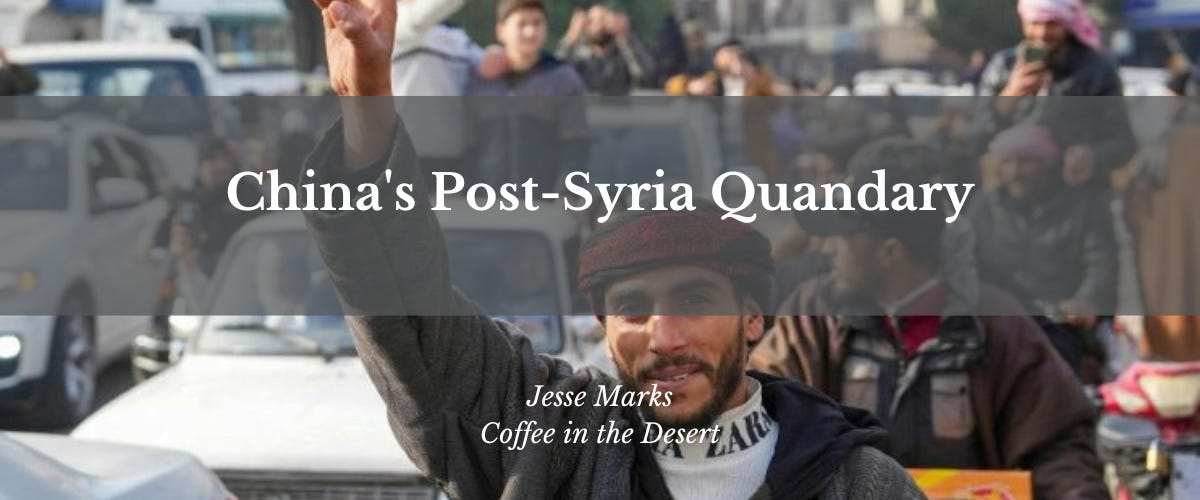China's Post-Syria Quandary - The Long Shadow of Assad's Ousting on China
The fall of Bashar al-Assad represents a watershed moment for the Middle East and a critical test for China’s foreign policy. Having invested significant political capital in supporting the Assad regime and framing its normalization with the Arab League as evidence of the success of its diplomatic model [See my comments on the Chinese 2024 report in the implementation of GRI], China now risks being sidelined in Syria's post-Assad landscape. This situation forces Beijing to reconcile its principles of non-interference and regime stability with the need for pragmatism in adapting to new political realities.
Historically, China has demonstrated flexibility in maintaining ties with successive governments during periods of political transition, as seen in Sudan after Bashir, Libya after Ghaddafi, and Egypt after Mubarak and Morsi. This adaptability, which has allowed Beijing to safeguard economic and strategic interests despite regime change, will be put to the test in the coming months as Syria transitions to a new government. The shape and priorities of this new leadership will determine whether China can preserve its foothold in the country and capitalize on its long-term interests, particularly in reconstruction.
China's motivations for engaging in Syria were driven largely by the potential for post-war reconstruction and access to a substantial export market. However, with Iranian influence significantly weakened and Russia’s presence diminished, Syria now lacks a strong economic partner to sustain its population, much less to rebuild. While China remains one of the few states with the financial capital to support reconstruction, its involvement may require a delicate recalibration. Beijing’s relationships with Gulf states like Saudi Arabia and the UAE are likely to play pivotal role in this context if Beijing attempts to rebuild ties. These countries have increasingly assumed leadership roles in regional stabilization efforts and possess the financial resources and established networks to shape Syria’s reconstruction, but it remains to be seen whether or not they will. Their involvement may be an avenue for China to remain economically engaged without directly confronting the political uncertainties of Syria’s post-Assad transition.
In addition to economic considerations, China faces reputational challenges stemming from its backing of Assad. While Beijing's support was rooted in its non-interference policy and rejection of externally driven regime change, its alignment with a regime widely implicated in war crimes could tarnish its image in the region and beyond. Future international efforts to hold Assad accountable may deepen the gap between China and the global community, forcing Beijing to either defend its past support for Assad or embrace a new political reality.
Ultimately, Syria’s post-Assad transition will test China’s ability to adapt its Middle East strategy. If Beijing seeks to maintain relevance and benefit from future opportunities in Syria, it may have to swallow a bitter pill and acknowledge whatever political structure follows. The extent to which China can leverage Gulf partnerships, manage reputational risks, and recalibrate its approach to align with a new Syrian government will define its role in Syria’s post-conflict order and shape its broader engagement in the region.





Any recommended reading on how China handles states in political transitions?
Thank you for this piece!